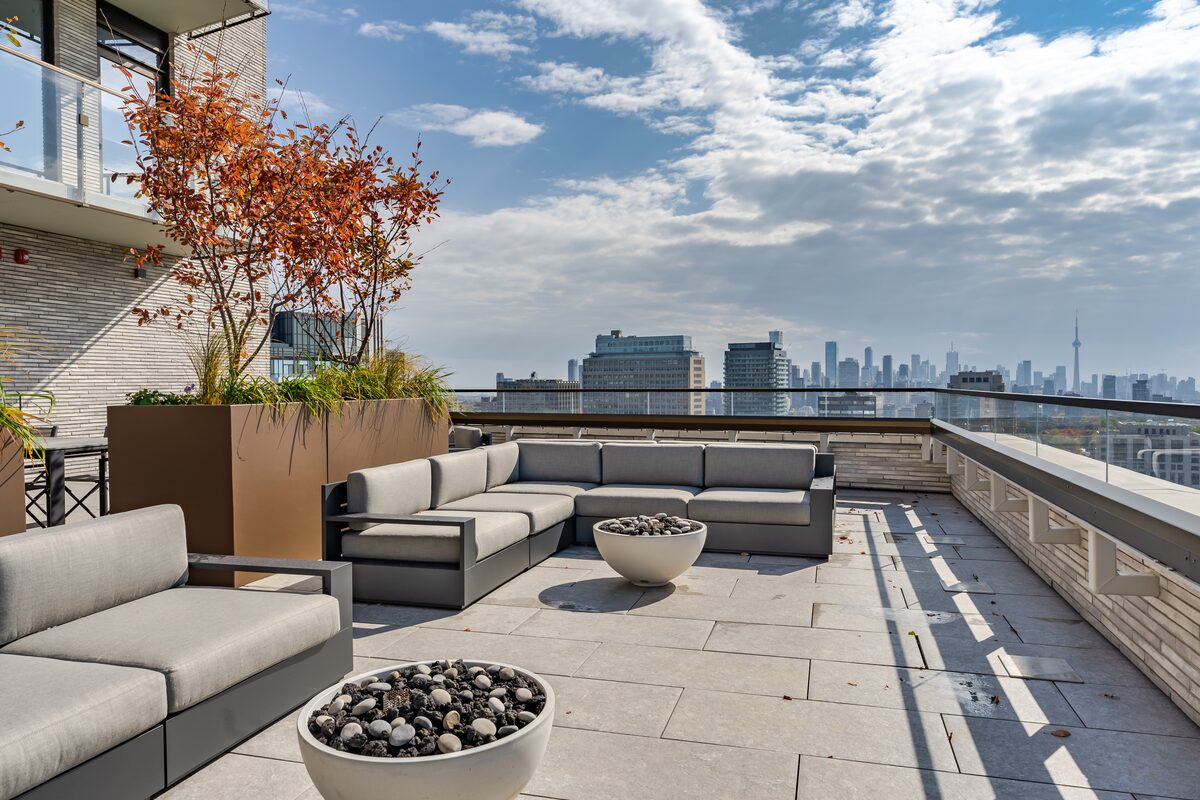Purchasing a luxury home in Canada is an exciting venture that involves a series of well-planned steps, from understanding your specific needs to closing the deal and moving in. With its diverse landscapes, vibrant cities, and high-quality living standards, Canada offers numerous opportunities for luxury home buyers. This comprehensive guide will walk you through the process of buying a luxury home in Canada, ensuring a smooth and successful transaction.

1. Defining Your Requirements
Identifying Your Needs and Preferences
Before you begin your search, it’s essential to define your specific needs and preferences:
- Location: Decide on the location that suits your lifestyle. Consider factors such as proximity to work, schools, amenities, and the natural environment. Popular locations for luxury homes in Canada include cities like Toronto, Vancouver, Montreal, Calgary, and scenic regions such as the Muskoka Lakes, Whistler, and the Okanagan Valley.
- Property Type: Determine the type of property you desire, such as a detached house, penthouse, waterfront estate, or mountain retreat. Canada offers a range of architectural styles from contemporary designs to historic homes.
- Size and Layout: Consider the size of the home, including the number of bedrooms, bathrooms, and overall square footage. Think about the layout and any specific features you desire, such as a home office, gym, or wine cellar.
- Amenities and Features: Identify the luxury features that are important to you, such as high-end finishes, smart home technology, security systems, swimming pools, and landscaped gardens.
Setting a Budget
Establish a realistic budget that includes not only the purchase price but also ongoing costs such as property taxes, insurance, maintenance, and utilities. Be mindful of closing costs, which in Canada can include legal fees, land transfer taxes, and potential renovations or upgrades.
2. Researching the Market
Exploring Luxury Real Estate Markets
Research different luxury real estate markets in Canada to find the best fit for your needs:
- Toronto: Known for its high-end neighborhoods such as Yorkville, Forest Hill, and The Bridle Path, Toronto offers a dynamic urban lifestyle with world-class amenities.
- Vancouver: With luxurious areas like West Vancouver, Shaughnessy, and Kitsilano, Vancouver combines stunning natural scenery with upscale living.
- Montreal: Areas such as Westmount and Outremont offer historic charm and sophisticated living in one of Canada’s most culturally rich cities.
- Calgary: Explore luxury properties in neighborhoods like Aspen Woods and Mount Royal, which provide proximity to the Rocky Mountains and a vibrant city center.
- Resort and Leisure Areas: Regions like Muskoka, Whistler, and the Okanagan Valley are known for their breathtaking landscapes and exclusive properties.
Market Trends and Property Values
Stay updated on current market trends and property values in your desired locations. Understand the factors driving price fluctuations and the overall market outlook. Industry publications, real estate websites, and market reports can provide valuable insights.
3. Engaging with Real Estate Professionals
Hiring a Luxury Real Estate Agent
A specialized luxury real estate agent can be invaluable in your home-buying process:
- Expertise: Provide expert advice on property selection, market conditions, and negotiation strategies.
- Access to Listings: Offer access to exclusive listings and off-market properties not readily available to the public.
- Negotiation: Assist in negotiating favorable terms and pricing, ensuring you get the best value for your investment.
Working with Other Professionals
Engage with other professionals to ensure a smooth transaction:
- Real Estate Lawyer: Hire a real estate lawyer to handle legal aspects, review contracts, and ensure compliance with Canadian property laws.
- Financial Advisor: Consult with a financial advisor to understand the financial implications and optimize your investment strategy.
- Home Inspector: Employ a home inspector to assess the property’s condition and identify any potential issues.
4. Property Search and Evaluation
Online Search and Property Tours
Begin your search online using luxury real estate websites and platforms. Once you identify potential properties, schedule property tours to evaluate them in person. Pay attention to:
- Location: Assess the neighborhood, proximity to amenities, and overall environment.
- Condition: Evaluate the property’s condition, including the quality of construction, finishes, and maintenance.
- Layout and Features: Ensure the home meets your size, layout, and feature requirements.
Comparing Properties
Compare multiple properties to make an informed decision. Consider factors such as price, location, condition, and potential for appreciation. Your real estate agent can help you analyze the pros and cons of each property.
5. Financing and Legal Considerations
Mortgage Options
Explore different mortgage options to finance your luxury home purchase:
- Conventional Loans: Traditional loans offered by banks and financial institutions. Compare rates, terms, and requirements.
- Jumbo Loans: Specialized loans for high-value properties that exceed standard loan limits. These loans often come with stricter requirements and higher interest rates.
- International Buyers: If you are an international buyer, research specific mortgage options available to non-residents and any additional requirements.
Pre-Approval
Obtain mortgage pre-approval to demonstrate your financial readiness to sellers. This process involves a thorough review of your financial situation and creditworthiness by the lender.
Legal and Tax Implications
Ensure compliance with all legal and tax requirements:
- Contracts and Agreements: Have your real estate lawyer review all contracts and agreements to ensure they are legally sound and protect your interests.
- Land Transfer Tax: Understand the land transfer tax implications, which can be substantial for high-value properties. The rate varies based on the property’s price and location.
- Property Taxes: Be aware of the annual property taxes, which vary depending on the property’s location and assessed value.
- Capital Gains Tax: Be aware of potential capital gains tax if you plan to sell the property in the future. Consult with a tax advisor for personalized advice.
6. Making an Offer and Negotiation
Crafting a Competitive Offer
Work with your real estate agent to craft a competitive offer that reflects the property’s value and market conditions. Consider including:
- Offer Price: Based on market analysis and comparable sales.
- Contingencies: Conditions that must be met for the sale to proceed, such as financing, inspection, and appraisal contingencies.
- Closing Timeline: A proposed timeline for closing the deal.
Negotiation Strategies
Use effective negotiation strategies to reach a favorable agreement:
- Market Knowledge: Leverage your understanding of the market to justify your offer and counteroffers.
- Flexibility: Be open to compromise on certain terms while holding firm on essential conditions.
- Professional Guidance: Rely on your real estate agent and lawyer for expert advice and representation.
7. Due Diligence and Closing
Conducting Due Diligence
Perform due diligence to ensure the property is a sound investment:
- Home Inspection: Hire a professional inspector to assess the property’s condition and identify any necessary repairs or maintenance.
- Appraisal: Obtain an appraisal to confirm the property’s value and ensure it aligns with your offer.
- Title Search: Conduct a title search to verify ownership and check for any liens or encumbrances.
Closing the Deal
Finalize the purchase by completing the following steps:
- Review Documents: Carefully review all closing documents, including the purchase agreement, mortgage documents, and title insurance policy.
- Closing Costs: Be prepared to pay closing costs, which may include fees for the lawyer, land transfer tax, appraisal, and other expenses.
- Final Walkthrough: Conduct a final walkthrough of the property to ensure it is in the agreed-upon condition.
Taking Ownership
Once all documents are signed and funds are transferred, take ownership of your new luxury home. Obtain the keys and any necessary access codes or information for the property.
8. Post-Purchase Considerations
Moving In
Plan your move to ensure a smooth transition:
- Moving Services: Hire professional movers to transport your belongings and handle any special requirements for high-value items.
- Utilities and Services: Set up utilities, internet, and any necessary home services.
Home Management
Establish a plan for ongoing home management and maintenance:
- Maintenance Schedule: Create a schedule for regular maintenance tasks, such as HVAC servicing, landscaping, and pool care.
- Service Providers: Identify reliable service providers for any necessary repairs, cleaning, and upkeep.
Home Security
Enhance the security of your luxury home:
- Security Systems: Install a comprehensive security system with alarms, cameras, and smart home integration.
- Gated Communities: If applicable, understand the security protocols and measures in place within your community.
Conclusion
Purchasing a luxury home in Canada is a complex and rewarding endeavor that requires careful planning, expert guidance, and thorough research. By defining your needs, engaging with real estate professionals, and navigating the legal and financial aspects, you can successfully acquire a luxury property that meets your requirements and provides exceptional value. With proper planning and management, owning a luxury home offers unparalleled comfort, convenience, and prestige, ensuring a fulfilling lifestyle for years to come.
